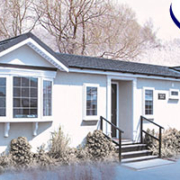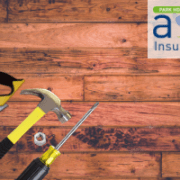Preparing your park home for the winter reduces the risk of damage to your home.
Tag Archive for: Park Home
Now that the days are getting shorter and the weather is getting colder, the focus shifts from al fresco dining to cosy nights in! Autumn and winter can still provide great opportunities for relaxing and enjoying your park home, whether it’s pub lunches, countryside walks, wildlife spotting or a bracing stroll along the beach. Now’s a good time to plan ahead and take a few precautions to ensure that your park home is protected against the winter weather and still provides a cosy retreat.
Ten tips for preparing your park home for winter
- Check your roof and repair or replace any broken tiles
- Clear drains and gutters to avoid any blockages – do this regularly if you’re surrounded by trees as leaves and debris can build up quickly
- Visit the environment agency website to check if your park home is at risk of flooding
- Install insulation to prevent heat escaping through the roof
- Have your boiler checked to identify any issues before it gets too cold
- Keep your park home warm and the heating on whenever you can to avoid frozen pipes – see our blog post about preventing escape of water from your park home
- Be sure to know where your stopcock is in case you need to turn off the water in your park home quickly
- Repair any dripping taps
- Seal any gaps around the edges of doors and windows to prevent draughts – but still try to maintain some ventilation
- If you’re not going to be staying in your park home as often, then check your park home insurance policy for clauses relating to unoccupancy. You can review Park Home Assist Park Home Insurance policy documents here
Taking these simple steps could help to avoid the stress and hassle of having to make an insurance claim. It is also worthwhile saving your insurance provider’s contact details on your phone in case of an emergency.
Wrap up well and stay safe and warm this winter.

As we approach the winter, the risk of damage to your park home from frost and ice increases. It is therefore very important to be aware of any conditions of your park home insurance policy, especially if you are spending less time at your park home.
If your park home is unoccupied for more than 48 hours during the period between 1st November and 31st March (both days inclusive) to reduce the risk from escape of water, and in order to fulfil policy conditions, we recommend that you drain down the entire water system as a precaution to prevent freezing and any potential damage this may cause.
How to drain the hot and cold water system of a combi boiler
- Turn off and/or extinguish your water heater/boiler
- Turn off the mains water supply at the entrance to your park home
- Run all the taps in the property and flush all toilets until water stops coming out
- If you have a hot water cylinder, empty it by opening the drain-cock at its base, attach a hosepipe to the drain-cock and run the water into a drain or bucket
- Empty the rising main, and any low pipework if applicable, by opening their drain-cocks
- When all water tanks are empty, leave both hot and cold taps fully open with plugs removed throughout your park home
- Put salt into the toilet pans to prevent water in the trap from freezing
If your park home has a sealed heating system containing antifreeze, then the heating system does not need to be drained down, but antifreeze levels must be checked annually and particularly prior to a period of unoccupancy. However, you will still need to turn off the water supply and drain the water system.
When can the water supply remain on?
Alternatively, you may leave the water supply turned on under the following circumstances:
- When the entire home benefits from a heating system (either gas or oil-fired central heating, a geothermal or full electric system – not night storage heaters), which is fitted with automatic controls and a separate thermostat. The system must be set to operate continuously for 24 hours of each day (not controlled by a timing device) and the thermostat set to not less than 13 degrees Celsius. In addition, all internal doors must remain open throughout the park home and where fitted, the loft hatch must be left open.
- When your park home has either a gas or oil-fired central heating system, a geothermal or full electric system and it is fitted with a ‘frost stat’ that is designed and installed to override all the heating controls, irrespective of their functional status, then this must be set to operate at no less than 4 degrees Celsius.
Other things to consider
If you leave your park home without an occupant for 60 consecutive days or more, then you must ensure that a responsible person is appointed to supervise and check the property both internally and externally at least once every 30 days.
In addition, when the park home is left without an occupant for 60 consecutive days then valuables are excluded from your park home insurance cover.
If you have any queries about the conditions of your park home insurance policy, then visit our park home insurance FAQs page, see our park home insurance policy booklet or call our customer service team on 01604 946 722.
For more tips on park homes and to keep up to date with park home related news, please follow us on Facebook, Twitter & LinkedIn.

A fire in a park home can be devastating, so being prepared and maintaining fire safety is very important, especially because of the materials used to manufacture park homes. Having a fire safety plan and the right equipment in your park home to deal with a fire should it occur, is essential.
Although you cannot completely protect your home from fire, you can significantly reduce the risk of one breaking out, if you follow the following fire safety tips:
- Fit and maintain a smoke alarm in your home. Smoke alarms really do save lives! Test it regularly and replace the batteries at least twice a year. If your fire alarm starts beeping, it’s time to change the batteries. Putting your smoke alarm in the right place is essential. Try not to have it too close to the kitchen, as it may be triggered by making toast or steam from cooking, for example. Not only will this be annoying, but you may think a real warning is a false alarm. The best place to position a smoke alarm is on the ceiling in the hallway, near where you sleep.
- Check electrical appliances regularly for any signs of damage and ensure they are replaced or repaired properly. If you have too many plugs in one socket, this could overload the socket and cause a fire, so one plug per socket is usually best. Unplug appliances when you are not using them and before you go to bed.
- Stay in the kitchen when you are cooking fat, as this can catch fire very quickly, and never put water on hot fat. Make sure that cooking equipment is completely switched off when you have finished with it.
- If you are a smoker, make sure all cigarettes are put out properly and don’t smoke in bed to avoid the danger of falling asleep while smoking.
- Keep a fire blanket in your park home.
- Keep a fire distinguisher in your park home, and read and fully understand its instructions.
- Think about how to get out safely: plan an escape route from every room of your park home and be sure to keep the area clear at all times.
- Do some checks before you go to bed, as a lot of fires start at night.
There are many more things you can do to protect you and your park home from fire. Contact your local fire department if you would like more information.
For more tips on park home living, follow us on Twitter, Facebook or LinkedIn or have a look through our website.
 Legal expenses cover – do you need it?
Legal expenses cover – do you need it?
You may think that you’re unlikely to get involved in any legal disputes, but everyday transactions can be legally-binding contracts. If everything doesn’t go according to plan, legal expenses cover gives you the peace of mind that you will not be out of pocket, if you want to put it right. So for as little as £13.44 per year (equivalent to just £1.12 per month or 3.7p per day) you will receive up to £50,000 in legal costs and benefits from legal expenses cover.
Here are just some examples of park home owners who were very pleased and relieved to have legal expenses cover in place.
Legal expenses cover – property damage dispute
The policyholder contacted the legal helpline after a branch fell from a tree and damaged the back walls of their park home. They had previously complained to the park owner and raised their concerns about the tree, requesting that the branch was removed, but these requests had been ignored. Following the damage, the policyholder wrote emails and left messages with the park owner to inform them of the incident, but received no reply. As the policyholder had no other insurance policies that would cover this incident, our specialist legal insurers reviewed the case. They believed that prospects of success for the case were positive and instructed their panel solicitor to act on behalf of the park home owner. The panel solicitor contacted the park owner and managed to agree a settlement out of court. All legal fees were covered under the legal expenses insurance policy.
Legal expenses cover – dispute over purchase of a service
The policyholder contacted the legal helpline after work on the flooring in her park home, had not been completed to a satisfactory standard. Despite numerous attempts to contact the contractor, the park home owner did not get a reply. The park home owner therefore submitted a claim, which was referred to our specialist legal protection insurers. They examined the case and believed the prospects of success to be above 51%, so they instructed their panel solicitor to begin legal proceedings on behalf of the park home owner. The panel solicitor eventually managed to enter into discussions with the contractor, who agreed to rectify the park home flooring, which was completed to a satisfactory standard. All legal costs were covered under the legal expenses insurance policy.
Legal expenses cover – dispute with park owner
A park home owner contacted the legal helpline, as they were being pursued for non-payment of rent by the owner of the residential park. The park owner stated that the rent had increased, and if the policyholder did not pay this additional rate, they would take legal action to remove them from the park. This rent increase had not been previously discussed, and the specialist legal protection insurers returned the prospects of success for the case as being over 51%. They agreed to instruct a panel solicitor to act on behalf of the policyholder. The solicitor contacted the park home owner to discuss the claim and managed to settle the dispute out of court, with the park owner agreeing to stop pursuing the policyholder. All legal costs were covered under the legal expenses insurance policy.
If you choose to take out legal protection cover when you buy or renew your park home insurance, it is not limited to issues relating to your park home. You’re also covered for legal expenses incurred in a wide range of situations, for example, cases involving ID fraud, social media, personal injury and employment disputes.
For more information about our legal expenses cover, contact our park home insurance team.
To keep up to date on more topics like this, please follow us on Facebook, Twitter & LinkedIn.
 Your park home insurance will cover you if the unexpected happens, such as storm damage, however, general wear and tear on your park home will not be covered so maintaining your park home is very important. If your home is under warranty, you will be expected to follow a maintenance schedule to keep the warranty valid. Keeping your park home maintained all year round, ensures that your property not only looks its best, but it will help to avoid any unnecessary damage.
Your park home insurance will cover you if the unexpected happens, such as storm damage, however, general wear and tear on your park home will not be covered so maintaining your park home is very important. If your home is under warranty, you will be expected to follow a maintenance schedule to keep the warranty valid. Keeping your park home maintained all year round, ensures that your property not only looks its best, but it will help to avoid any unnecessary damage.
Here are a few tips to help you keep your park home in a good condition:
Maintain the exterior walls of your park home
Check the exterior walls of your park home at least four times a year. Check for cracks so they can be treated as soon as possible. Keep the exterior clean and make sure the textured coating is repainted every three years to keep the home weatherproof throughout its lifetime.
Check the seals around doors and windows
Check that the seals are not damaged or broken, as this will help to prevent mould, mildew or damp. Make repairs as soon as you can because if these are not well maintained, damage caused by broken seals may not be covered by your insurer.
Maintain the chassis of your home
Pay attention to what is happening underneath your park home. It will rest on a chassis and a supporting structure, and it’s the only thing on your park home that cannot be replaced. Get a professional to check the chassis of your home regularly, especially if your park home is over 10 years old. The condition of the chassis and the supporting structure is important for the stability and lifespan of your park home. Check for rust as this can weaken the structure and should be taken care of straight away. If your home has been modernised or refurbished this could affect the stability of your home.
Maintain your roof regularly
Check the roof of your park home regularly to make sure there is no damage. Check all the joints on the roof and if you find any problems, make sure you that you deal with them straight away. Make sure that good quality roof adhesive is used whenever any repairs are made to preserve the lifespan of the roof. Check your guttering to make sure it is free of debris and has no cracks or holes. If your roof and guttering are not maintained properly, your home may not be covered by your park home insurer.
For more tips on park homes and to keep up to date, please follow us on Facebook, Twitter & LinkedIn.
Company
Insurance Services
- Park Home Insurance
- General Insurance Tips & Advice For Park Home Insurance
- Mobile Home Insurance
- Holiday Lodge Insurance
- Park Home Owner Car Insurance
- Motorhome Insurance
- Static Caravan Insurance
- Floating Home Insurance
- Boat Insurance
- Touring Caravan Insurance
- Holiday Home Insurance
- Making a claim
- UK Park home insurance
- FloodRe







 Legal expenses cover – do you need it?
Legal expenses cover – do you need it? 
